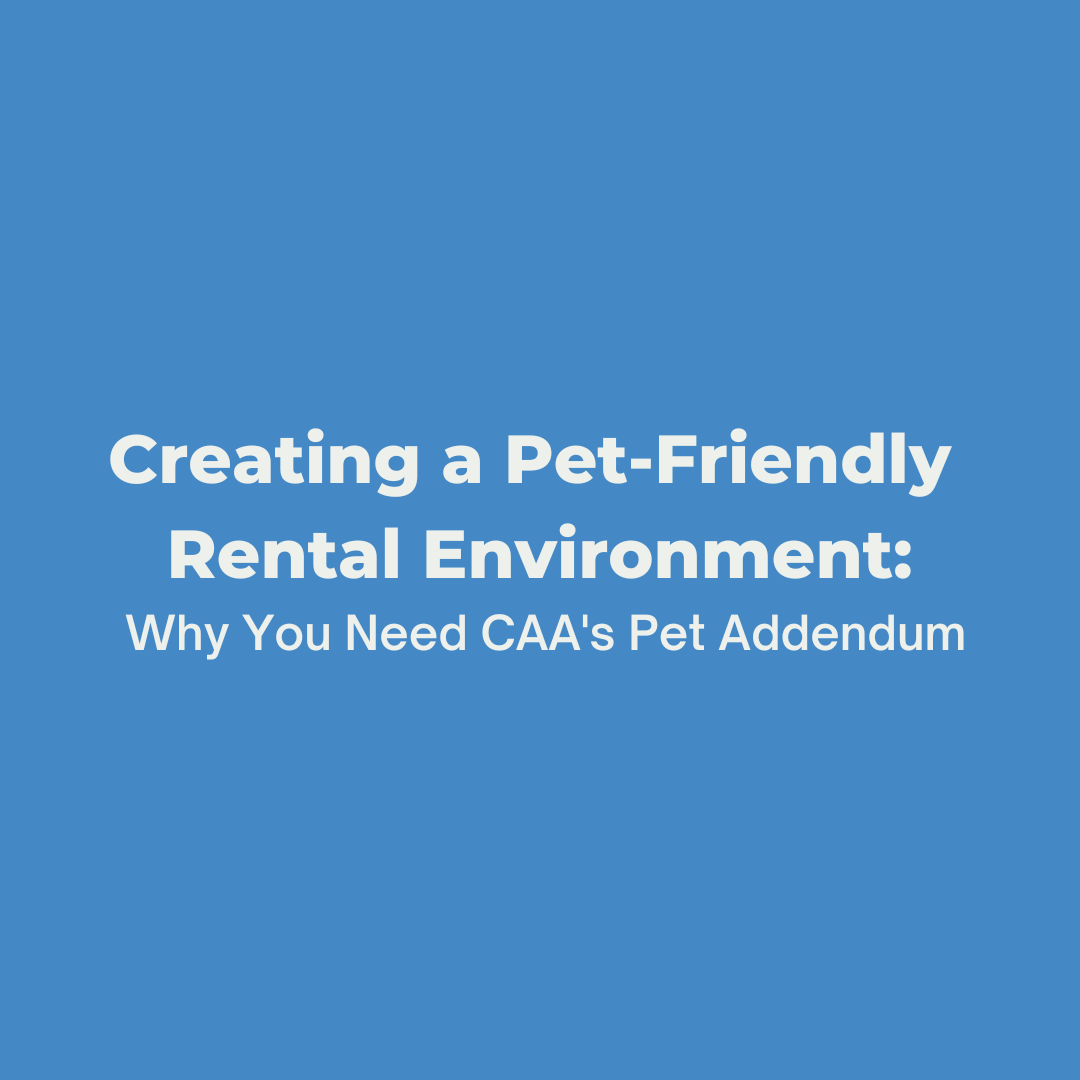Creating a Pet-Friendly Rental Environment: Why You Need CAA's Pet Addendum
As a landlord, allowing pets in your rental property can be a decision that comes with its own set of challenges.

However, with the right tools and agreements in place, you can ensure that both your property and your renters are protected. One such tool that can make your pet policy clear and legally compliant is the California Apartment Association's (CAA) Pet Addendum. In this blog post, we will explore the key features of CAA's Pet Addendum and why it is essential for creating a pet-friendly rental environment.
- Written Consent
The CAA Pet Addendum requires tenants to obtain the landlord's prior written consent before keeping a pet on the premises. This helps you maintain control over the type and number of pets allowed in your property. By having written consent, you can ensure that you are aware of allthe pets residing in your rental unit and that they comply with your pet policy. - Pet Information
The Pet Addendum requires tenants to provide detailed information about their pet, including its type, breed, name, sex, age, size, and a photograph or description. This information allows you to keep accurate records and monitor compliance with your pet policy. It also helps you ensure that the pet is suitable for your property and that it meets any requirements you may have, such as size or breed restrictions. - Compliance with Laws
The Pet Addendum includes a clause that requires tenants to comply with all applicable ordinances, regulations, and laws pertaining to their pet. This ensures responsible pet ownership and helps prevent any legal or regulatory issues that may arise due to pet-related incidents. It also helps you maintain a safe and lawful environment for all residents in your rental property. - Spaying and Neutering
The CAA Pet Addendum gives landlords the option to require pets to be spayed or neutered. This can be an important clause to include in your pet policy as it helps control pet populations and prevents unwanted behavior such as aggressive tendencies or mating-related issues. Spaying and neutering can also contribute to a healthier and safer living environment for both pets and residents. - Proper Waste Disposal
The Pet Addendum outlines specific guidelines for waste disposal and litter box maintenance. This ensures that tenants are responsible for proper waste management, which helps maintain a clean and hygienic living environment for all residents in your rental property. Proper waste disposal is not only essential for the well-being of the pets but also for the overall cleanliness and maintenance of your property.
In addition to these key features, the CAA Pet Addendum is just one of the 90 addenda available on CAA's website, catering to various languages and situations. Determining which addenda are necessary for your specific property can be a daunting task, but CAA is here to help. On April 19, 2023, CAA will be presenting a webinar that breaks down the questions property owners and managers need to ask to determine the addenda they need and which CAA addenda should or should not be used based on the answers to those questions.
In conclusion, if you are a landlord considering allowing pets in your rental property, it is crucial to have a clear and comprehensive pet policy in place. The California Apartment Association's Pet Addendum is an excellent tool to achieve this. With its features such as written consent, pet information, compliance with laws, spaying and neutering requirements, and proper waste disposal guidelines, the Pet Addendum helps you create a pet-friendly rental environment while protecting your property and maintaining a harmonious community. Don't miss the opportunity to learn more about CAA's addenda in the upcoming webinar on April 19, 2023.








